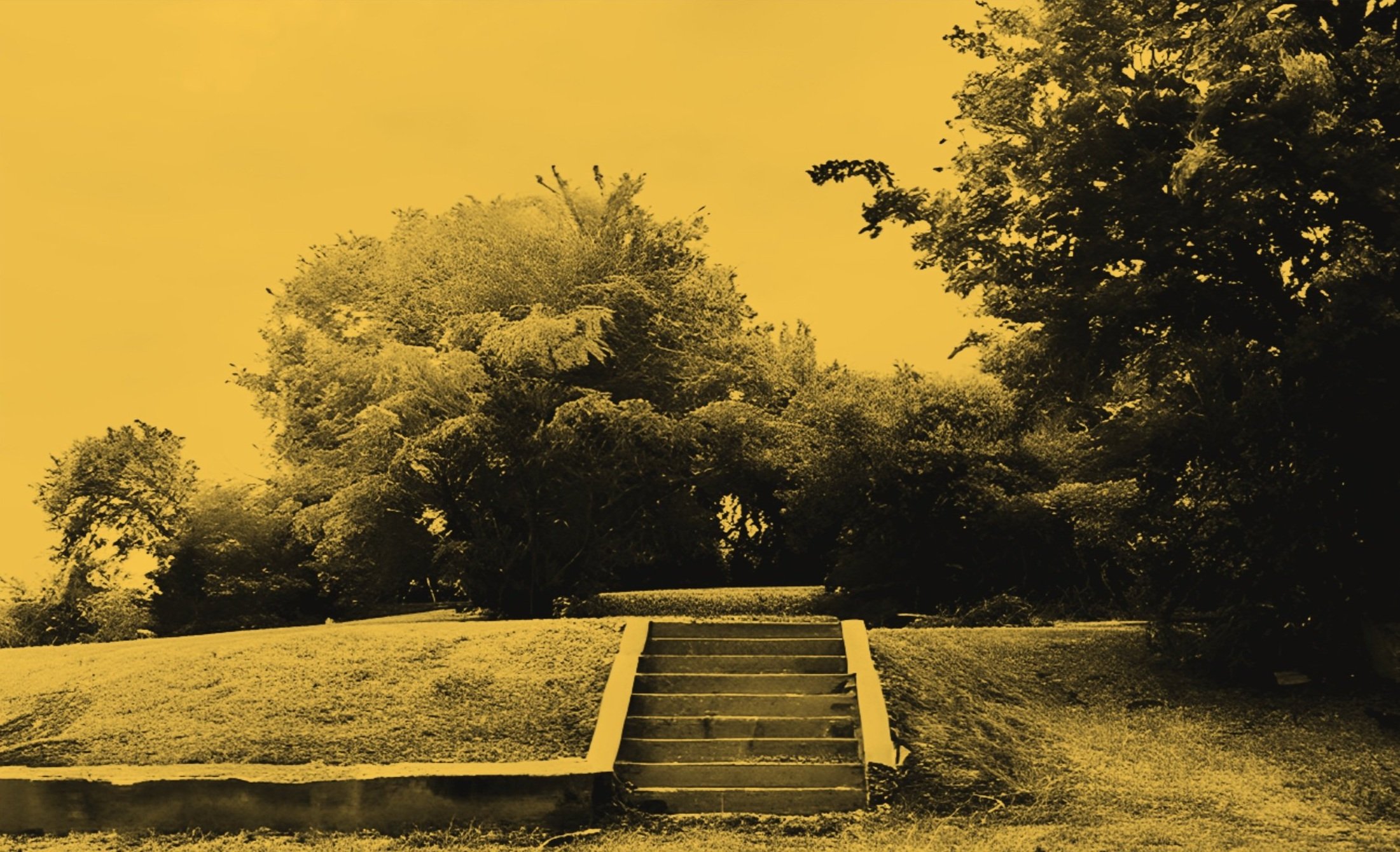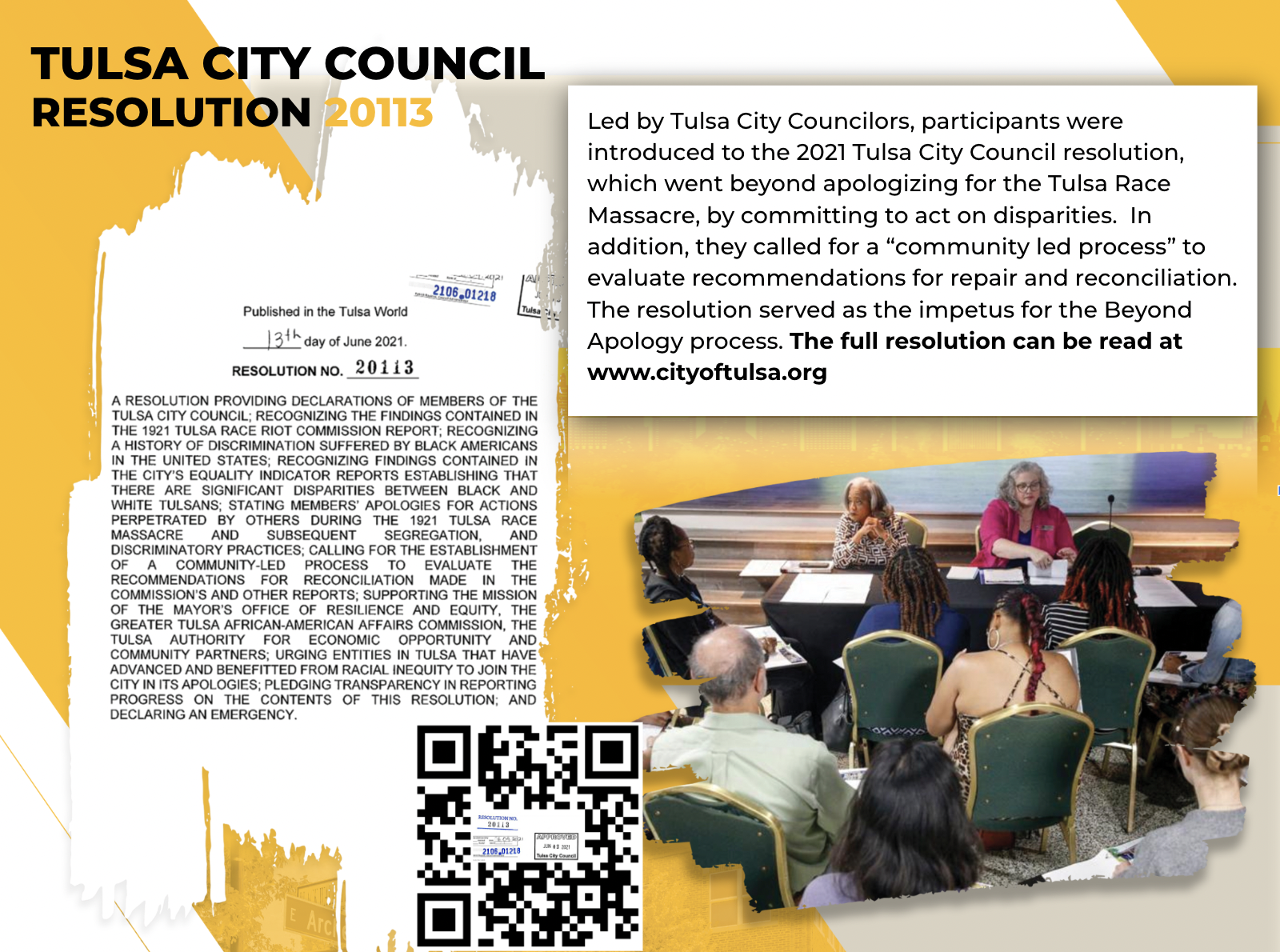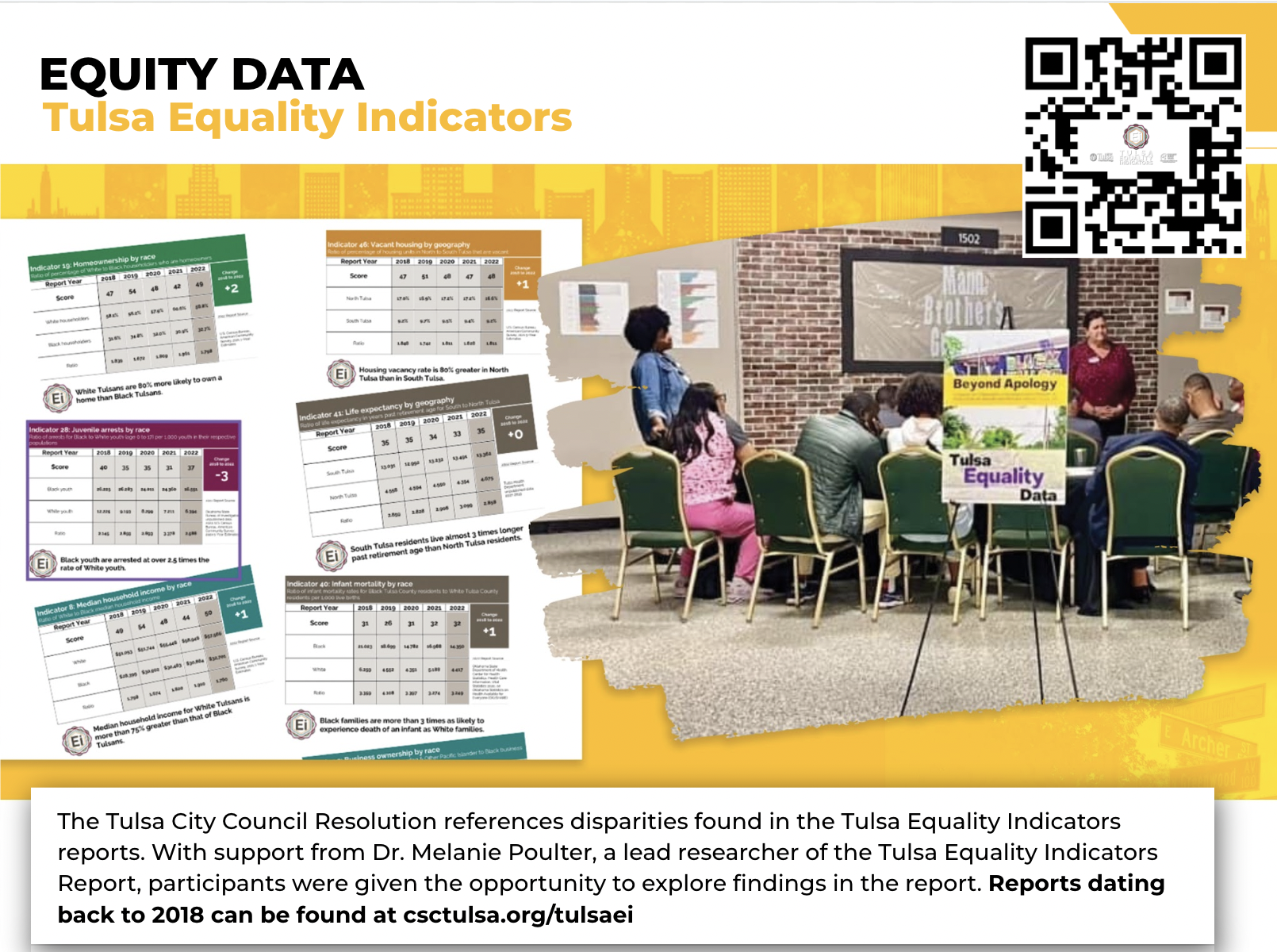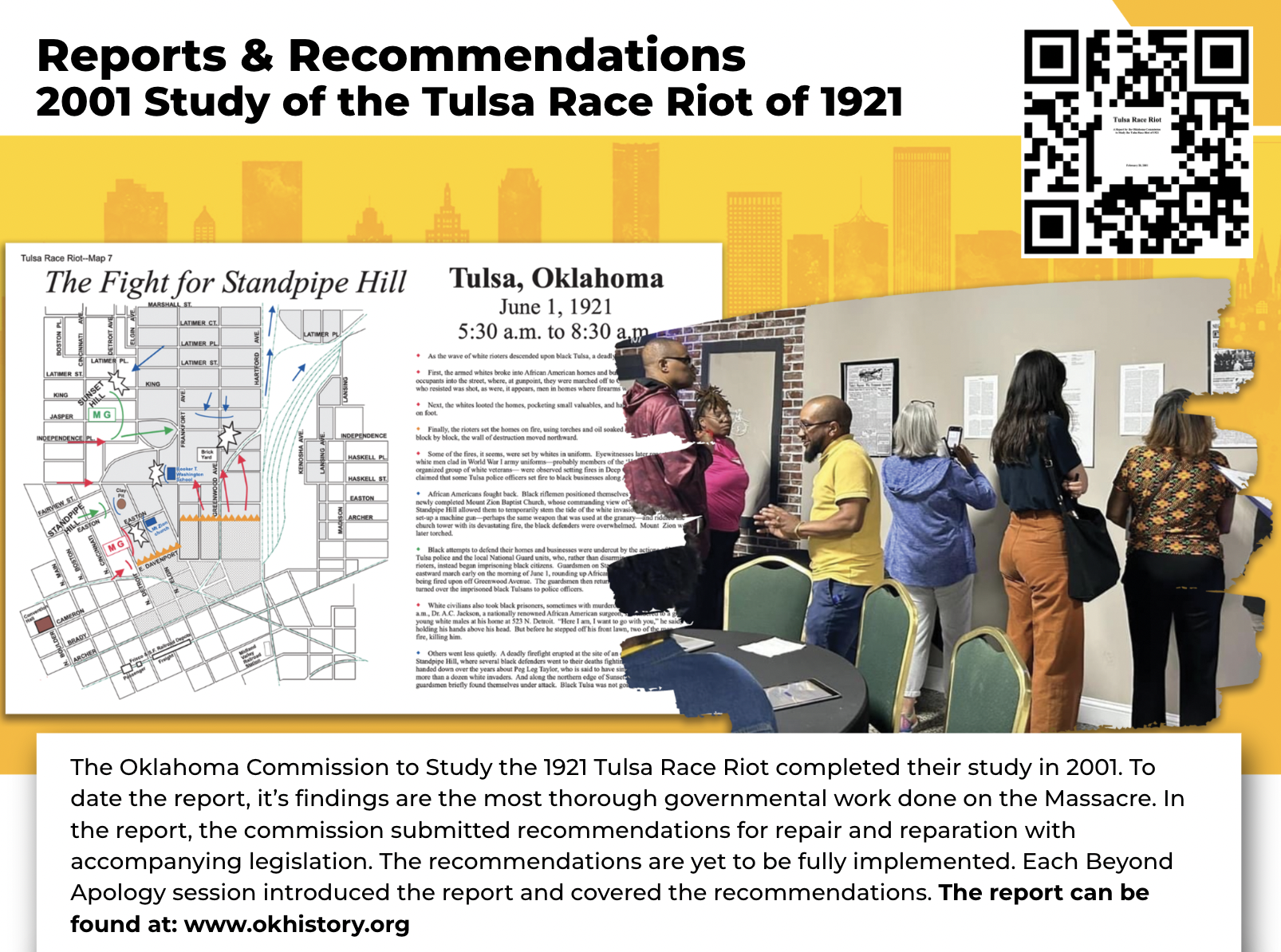

Between April & July 2023, community members in Tulsa, OK engaged in conversations around repair and reparation in Tulsa, OK. The Beyond Apology Report is a synopsis of community perspective from that process.
We acknowledge that no process, study, or report can fully collect, detail or assess the past events or present impacts of the 1921 Tulsa Race Massacre and its over 100 year aftermath. Furthermore, we acknowledge that without direct action on “findings'' from any of the many processes, studies and reports around these events, there cannot be justice. Therefore, “Beyond Apology” (the process) and report endeavors to serve another brick-layer in the foundation laid and re-laid by the many attorneys, historians, researchers, activists and legislators [past and present] who have and continue to work towards justice.
This work is dedicated to the survivors and descendants of the 1921 Tulsa Race Massacre and the resilient spirit of Greenwood.
The Beyond Apology Report

COMMUNAL PRIORITIES FOR REPAIR AND REPARATION BY THEME
Researchers with The Public Work Project at OSU-Tulsa collected data at each Beyond Apology session, transcribed participant statements, analyzed the data, and produced a report of the findings, provided to the Beyond Apology team. Eight themes emerged from the data:
Financial Compensation
Community & Economic Development
Housing
Land
Health & Wellness
Systems Change
Cultural Identity
In the “Findings” section of this report, these themes are summarized in descending order according to the number of individuals who shared thoughts related to a particular area or approach to repair or reparation.


Recommendations
In line with successful local, national and international reparations programs, we recommend that the City of Tulsa establish a government sanctioned task-force or commission to establish and implement the terms of a reparations program.
The scope should at the very least include survivors and descendants of the Tulsa race massacre and Black Tulsans who have been impacted by discriminatory policies and practices.
Furthermore, the make-up of the above mentioned Task-force or commission should ensure overwhelming representation from the communities most impacted by the harm.
Finally, the “reparations program” must be differentiated from “equitable policy”. While the City of Tulsa should strive to enact “equitable policy”, the matter of reparations and any ensuing program exists to remedy past harms done to a specific group of people. In this case that is the the over 100 years of harm done to Black Tulsans in the wake of the 1921 Tulsa Race Massacre.
The Beyond Apology Report compares recommendations made in the two most extensive studies of the Tulsa Race Massacre (2001 Oklahoma Commission Report, 2020 Human Rights Watch Report) with the community priorities identified through the Beyond Apology process (2023).


Community Resources
& Study Materials















